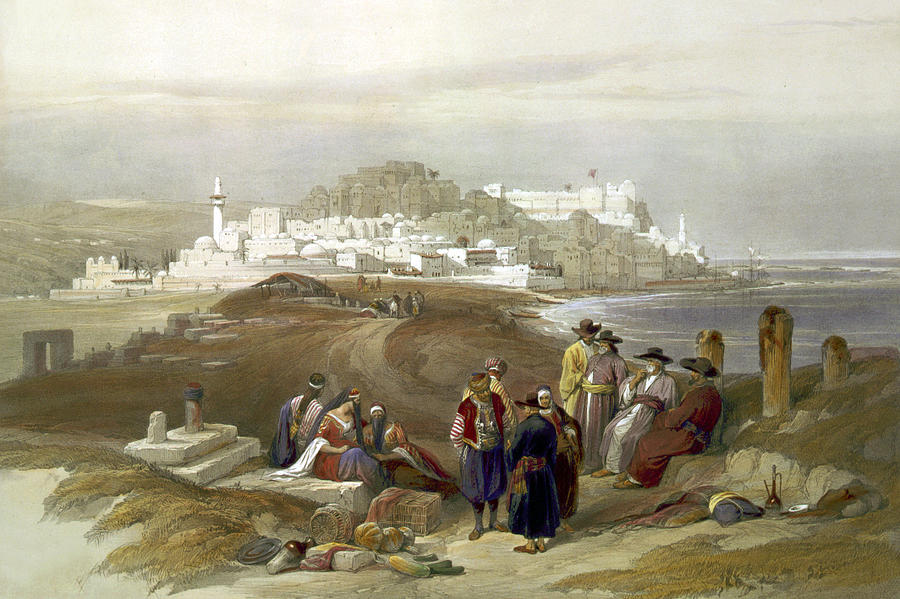
JAFFA.
JOPPA, or Jaffa, as it is now called, is situated on the coast of the Mediterranean Sea, about thirty miles west and a little north of Jerusalem. It is one of the oldest cities in the world, and its harbor, though unprotected, is the best in Palestine. Jaffa was the seaport of Jerusalem when that city became the metropolis of the kingdom of the house of David. Herod the Great, in his march to Jerusalem, took possession of Jaffa, as it was at that time a strongly fortified city.
During the Maccabean wars, described in the Apocrypha, a large proportion of the population were foreigners, the native Jews numbering only a few hundred. These foreigners at one time enticed about two hundred of the Jews aboard their ships, and then threw them into the sea. For this, Judas Maccabeus attacked the city by night, and burnt the shipping and all on board.
There is probably no city in the world that has been overthrown, sacked, pillaged, plundered, burned, and rebuilt, more times than Jaffa. History records the fact that at one time there was but one house left standing in the town, and that, a "guard-house;" and whenever a foreign vessel landed, the watchman notified the merchants of Ramlah, a town a few miles inland. Forty years ago, the population numbered about six thousand, but at the present time it is estimated at twice that number.
This city is first mentioned in the Bible in the book of Joshua, in the nineteenth chapter, where Joshua, in dividing the land, mentions "Japho" as one of the boundary points of Dan. We hear no more of it until the time of Solomon. When he purposed to build the temple at Jerusalem, he sent to Hiram, King of Tyre, to furnish him with pine and cedar for the building. Hiram sent back a favorable answer, and said he would convey the timber from Mt. Lebanon to the sea, and down the sea to any place Solomon might name. He chose Jaffa; accordingly the timber was delivered there, and thence carried across the country to Jerusalem. When Zerubbabel rebuilt the temple, over five hundred years afterward, the wood was procured from the same place, and transported in the same manner. See Ezra 3. It was from Joppa that Jonah sailed when fleeing from the presence of the Lord. We read in the third verse of the first chapter of Jonah, that he "went down to Joppa, and he found a ship going to Tarshish, so he paid the fare thereof, and
went down into it."
It was at this place, also, that Tabitha, or Dorcas, was raised to life by Peter, an account of which is given in Acts 9:36-43. While at Joppa, Peter stopped at the house of one Simon a tanner, who dwelt by the seaside, and it was from this housetop that he saw the wonderful vision recorded in the tenth chapter.
The groves about Jaffa are very fine, and the gardens very productive. The place is noted for its fine fruits, such as oranges, lemons, citrons, watermelons, apricots, etc. The lemon and orange orchards are very beautiful, and extend far out into the country. When King Hiram sent Solomon the timber for the temple, Solomon sent back to him great quantities of grain and fruits, which might well have been obtained from the fertile fields and gardens about Joppa.
The accompanying picture presents a view from the southwest. The town is built upon a steep hill, and on approaching it from the sea, the square-topped houses give it the appearance of being terraced. Many of these houses are very ancient. Jaffa is the gathering-place of many vagabonds and fugitives, and this so imperils the safety of the better class of people, that few Europeans settle there. The mission schools, which have of late been established in the suburbs by some benevolent persons, are an interesting feature of the place, and are said to be already doing something toward improving the morals and state of civilization in the town.
R. H. COGGESHALL.